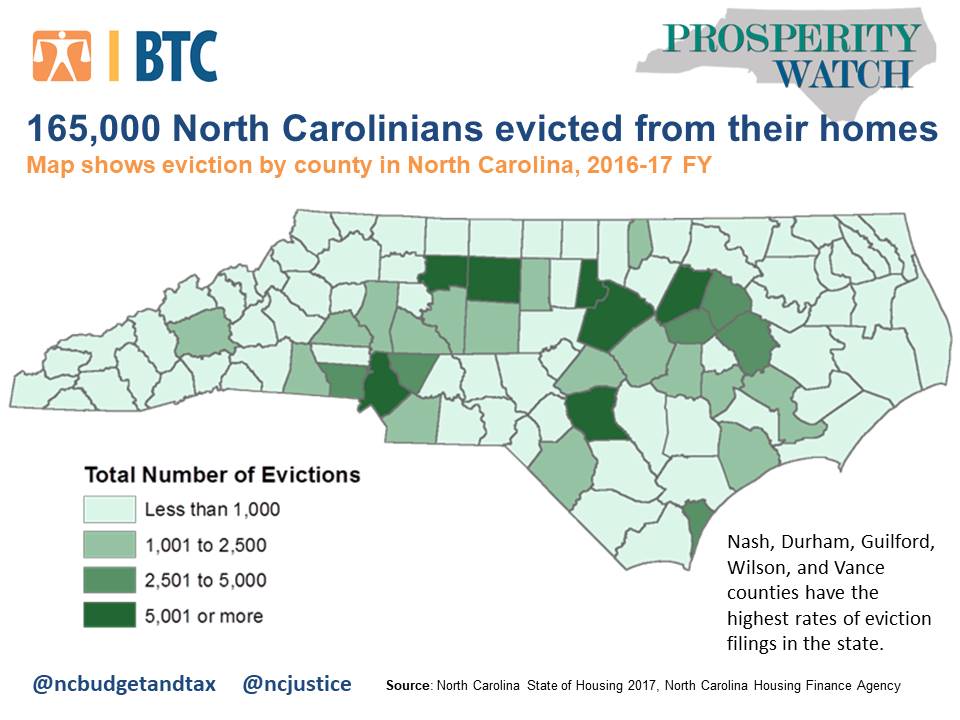Prosperity Watch (Issue 81, No. 1)
Dec. 4, 2017
Eviction is a harsh reality for many North Carolina residents. With ever increasing rent prices, inadequate investment in affordable housing programs—compounded by the loss of affordable units because of expiring subsidies and stagnant wages—has left many North Carolina families struggling to make rent payments. During the 2016-17 fiscal year, nearly 165,000 North Carolinians were evicted from their homes, according to data from the Administration of the Courts.
Eviction is a widespread issue in North Carolina, represented in both urban and rural communities.A map of earlier county level data shows the greater number of evictions as a share of the population along the I-95 and I-85 corridors through the state. Nash, Durham, Guilford, Wilson, and Vance counties have the highest rates of eviction filings in the state.
Evictions are most often caused by unpaid rent, with housing affordability further impacting the ability of a household to consistently make rent payments. Housing is considered affordable when a family or individual pays less than 30 percent of their income toward housing, including utilities. Unfortunately, North Carolina severely lacks affordable housing, leading nearly half of renters to pay more than the 30 percent threshold of on housing.
Currently, housing costs in North Carolina far outpace the 121,000 workers earning the minimum wage of $7.25 per hour. What’s more, renters who earn nearly twice the minimum wage are struggling to find affordable housing. Families have little choice but to spend a large percentage of their income on housing, causing financial constraints when they’re paying for other basic needs such as food and medical services.
Families with low incomes disproportionally pay a larger percent of their income on housing when compared to middle- and higher-income families, and those with high rent payments are also less likely to be able to save, making it more difficult to manage a job loss or other financial crisis. This places families at a higher risk of eviction if rent goes unpaid in the face of an emergency.
North Carolina families deserve housing that is safe and affordable. Yet as housing costs continue to climb, wages or investment in affordable housing – or ideally, both –need to increase to match the demands of the housing market.
 Justice Circle
Justice Circle 
